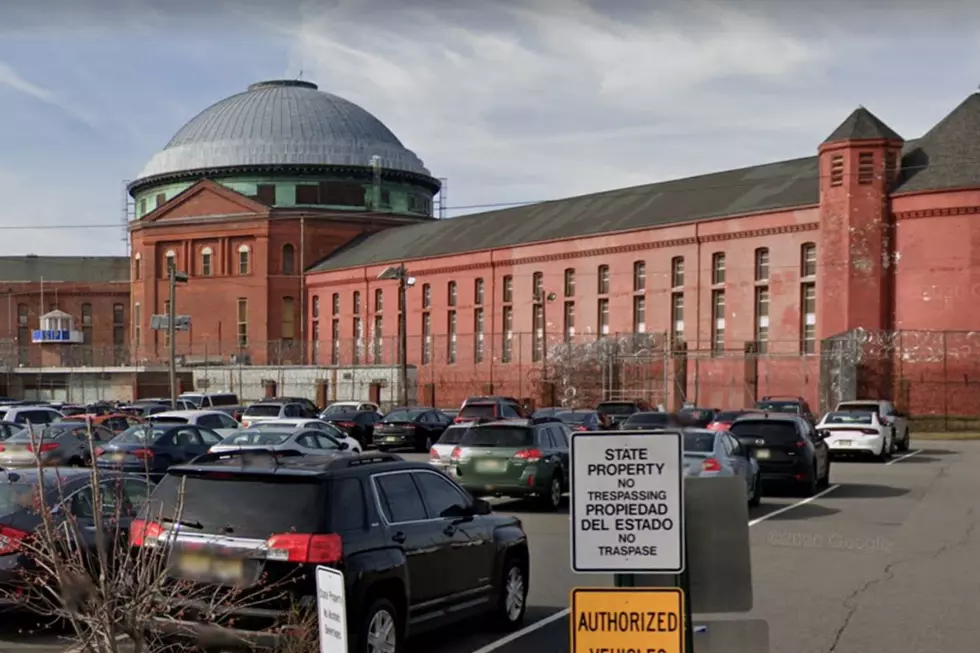
It’s official: Pandemic law will let up to 3,000 NJ inmates out early in 2020
A measure to allow some New Jersey inmates nearing the end of their sentences early release from prison amid a pandemic is the first law of its kind in the nation, according to advocates who applauded Monday's signature by Gov. Phil Murphy.
Sarah Fajardo, policy director at the American Civil Liberties Union of New Jersey, said the goal of the legislation was to have a "safety valve" that creates opportunities for release from prison in the event of a public health emergency — such as the ongoing novel coronavirus pandemic — for those who are nearing the “finish line” of their sentences.
New Jersey prisons have the highest COVID-19 related death rate in the country, to date, with more than 50 deaths due to the virus, Fajardo said. She said there have been spikes in other parts of the country, as the pandemic wears on.
Individuals convicted of violent crimes, including first-degree murder and aggravated sexual assault, or repetitive, compulsive sex offenders would not be eligible for early release.
Those being offered the pandemic credit for early release from prison are those who are “maxing out” and coming home within the year anyway, Fajardo said. The law calls for a four-month credit to be applied for each month served during a pandemic, capped at eight months.
“Since March, the population in State correctional facilities has decreased by nearly 3,000 people (16%), including more than 1,200 people who were released under Executive Order 124. This dramatic reduction has allowed for critical social distancing as part of the fight against COVID-19," Murphy said in a written statement released Monday night.
Executive order 124 granted temporary emergency home medical confinement to certain at-risk inmates who have not committed what the state deemed serious offenses.
Murphy continued: “Thanks to the efforts of our correctional leadership, the COVID-19 positivity rate among our incarcerated population is at an impressive low of 0.09%. But the threat of COVID-19 is still present."
“New Jersey has the worst Black-white racial disparities in its prison population in the United States and the highest rate of COVID-19-related deaths in prisons,” Salvation and Social Justice said in a written statement Monday, also commending Murphy's signature of the legislation that was sent to him in late September.
The group statement continued “During this pandemic, the prison system has proven dangerous for those incarcerated and those employed by the system. This law will increase the safety for all.”
Settings where people are living in close quarters have been severely impacted by coronavirus, including prisons, jails, juvenile justice facilities, detention centers and nursing homes, Fajardo said.
The early release pandemic credits also create more space for remaining inmates, as well as those working at prisons, to be able to better attempt any social distancing amid COVID-19.
Former Gov. Jim McGreevey, chairman of New Jersey Reentry Corporation, said the legislation, which goes into effect Nov. 4, means 2,000 inmates will be eligible for early release within 16 days and then another 1,000 toward the end of the year.
“As we move forward with this release, we all obviously want to do it well and want to ensure that persons have the best opportunity of leading healthy, law-abiding lives,” McGreevey said in an interview with New Jersey 101.5.
McGreevey said the NJRC is working with the state Department of Corrections, among its partners, as “the first 45 days after release are most critical,” ensuring that people have food stamps, general assistance, housing and addiction treatment medicine as they re-enter society.
Among those basic needs, proper personal identification is critical, and a state DOC ID is only good for 30 days, McGreevey noted. The NJRC's involvement also includes contact with the state Motor Vehicle Commission, attempting to cover such services “behind the wall,” so that there is an ID in place prior to being released.
McGreevey said the NJRC is also are working with faith-based partners on collecting toiletries and other basic need supplies for pandemic emergency survival kits to be given to some of those reentering society after prison.
Fajardo said these credits are necessary, as the people they impact “were not sentenced to a death sentence." She said amid dire health statistics in prison, the goal is to ensure that folks who are set to return home soon, are physically able to do so.
She also said ACLU-NJ has heard a lot of interest from other states on the model for options for release during health emergencies, and said that the organization is grateful for the state’s leadership.
Corrections Commissioner Marcus Hicks said in legislative testimony last month that 51 inmates who tested positive for coronavirus died, while NJ Prison Justice Watch previously has said it believes at least 14 additional deaths in prisons were due to COVID, though not reported as such.
All 51 of those confirmed deaths among NJ prisoners were reported between April and July, according to state DOC data.
“Our prison system has been severely impacted by the COVID-19 pandemic. Inmates have been afflicted at a particularly alarming rate due to the inability to quarantine or practice social distancing, creating a higher risk for individuals and the community at large upon their release,” Assemblymembers Raj Mukherji, Shavonda Sumter and Verlina Reynolds-Jackson said in a joint statement.
They continued: “Public health emergency credits will help expedite the release of certain inmates who are approaching the end of their sentences to reduce transmission to inmates and correctional facility staff. If we can enhance public health and safety by releasing eligible prisoners who are getting out anyway, we can effectively help reduce the spread of the virus in these facilities and reduce risk to the community upon their release.”
With previous reporting by Michael Symons
More from New Jersey 101.5:
More From New Jersey 101.5 FM









